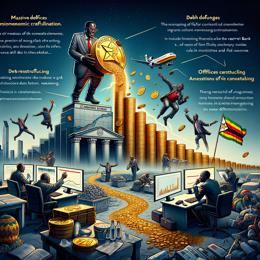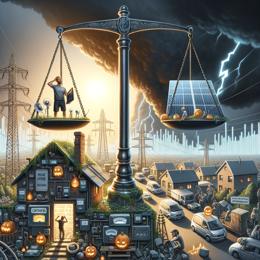Picture: for illustration purposes
Approaching $100 Oil Prices Spark Fear for Global Inflation Control
Economic seers worldwide are currently battling turbulence as oil prices approach the $100/barrel mark. This surge presents an unforeseen reminder that our global economy continues to endure disruptions caused by the pandemic and the war in Ukraine.
In a time where Federal Reserve Chair, Jerome Powell, is directing interest rates towards a "higher-for-longer" stance, the unrelenting oil price surge is creating an economic terrain characterized by rampant volatility. Officials from central banks in London to Washington are left pondering if this crude spike is a fleeting hiccup or a longer-lasting issue. A concern exacerbated by the fact that oil simultaneously influences consumer prices and hinders economic growth.
Rising oil prices are significantly inconveniencing the global momentum towards disinflation, according to Dario Perkins, an Economist at GlobalData TS Lombard. Surges in Brent crude prices, currently at around $95/barrel, are flagging an immediate red alert to central banks. The IMF dug into the outcomes of 100 inflation shocks from the 1970s to find that only 60% showed a substantial slowing of consumer-price growth within five years.
In the face of this economic turbulence, Treasury yields are enduring a 16-year high, making the upcoming week a pivotal one for global monetary policy. The Bank of England, Norges Bank, Sweden’s Riksbank, Swiss National Bank, the European Central Bank, and the Reserve Bank of Australia are expected to grapple with their policies as they contemplate the surge in crude prices.
The sudden spurt in crude prices poses considerable risk to economic growth. Chief Economist of the OECD Clare Lombardelli warns households will suffer a squeeze on budgets, with Europe expected to bear the brunt due to their dependence on energy imports.
Despite the challenges at hand, Bloomberg Economics anticipates policymakers won't be compelled to react drastically. Analysts expect banks to use experiences from the 1970s oil shocks to steer their response to this crisis.










